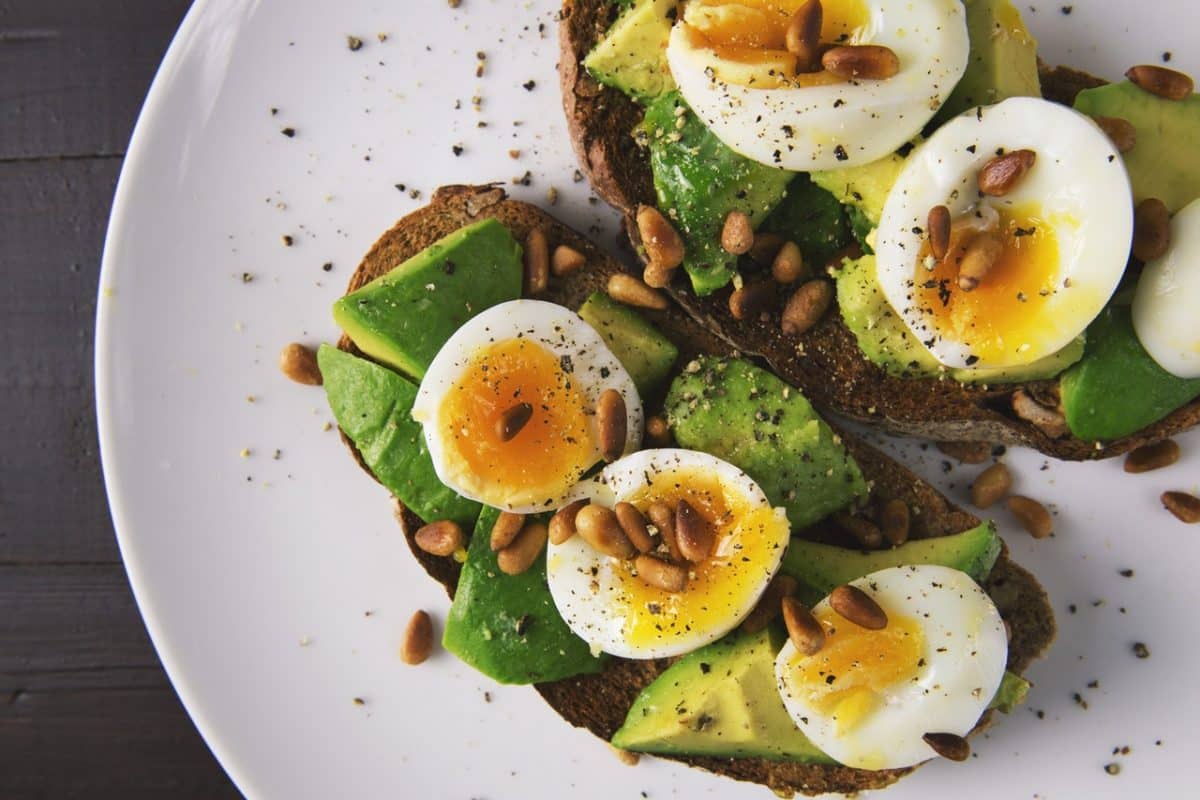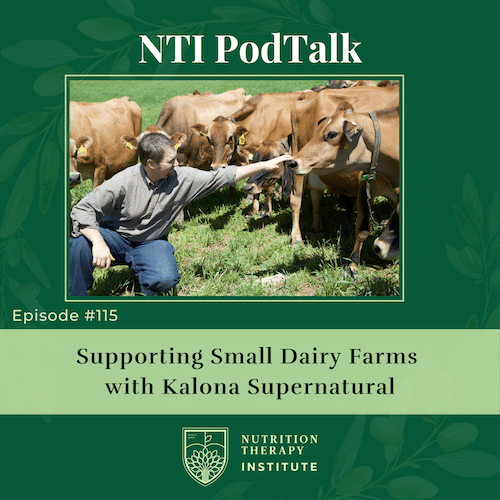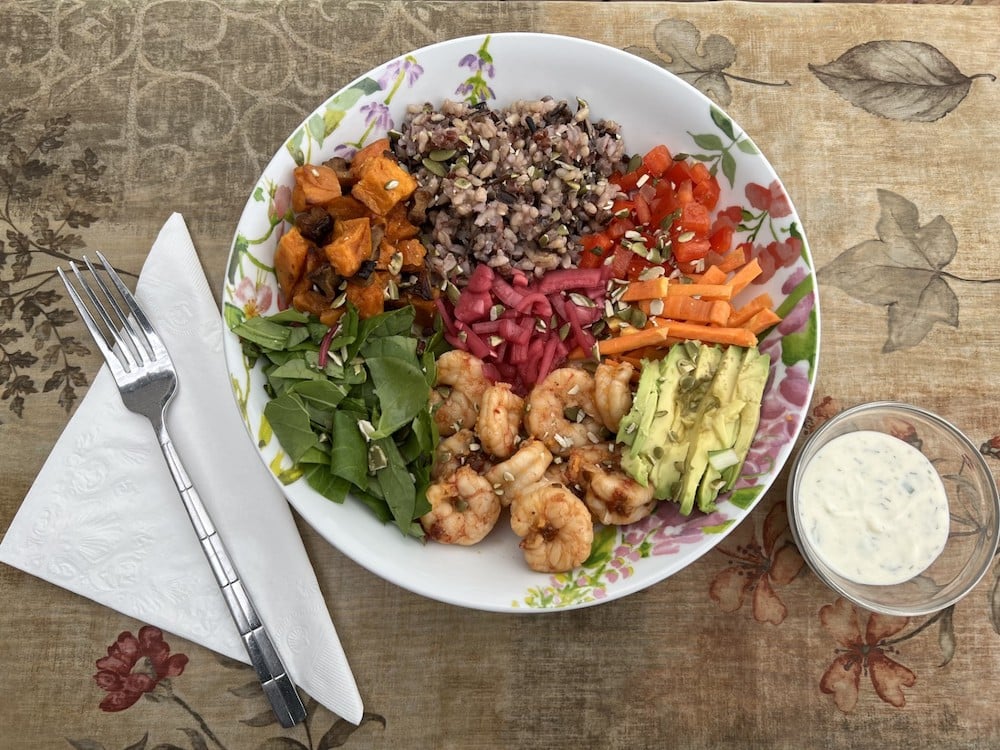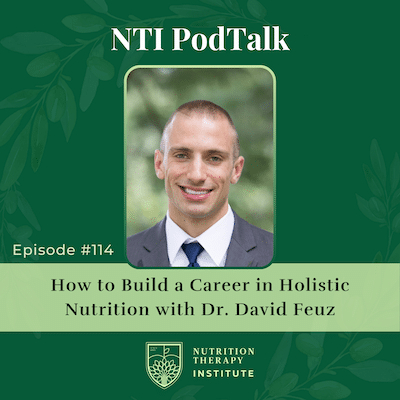
Share this post!
A national survey discovered that only 8% of US adults consume the daily recommended amount of choline. That might be because most people have never even heard of choline. Doctors aren’t talking about it, and nobody knows that they should even care.
I am writing this article to tell you this: you should care.
Choline may be one of the most underappreciated nutrients. It is foundational to the working of your muscles, heart, liver, brain, and more. Choline influences your immune system, inflammatory pathways, and even your genetic expression. In this article, we delve into the health benefits of choline, how much choline you need, and how to know if you are getting enough.
What is Choline?
Choline is a nutrient that is most closely related to the family of B vitamins, but it is not officially categorized as a vitamin or mineral. Choline is a methyl donor, which means that it participates in the body’s response to free radical damage, energy production, detoxification, and more. Choline is also a precursor molecule for 4 critical compounds in the body:
- Betaine. Betaine is needed for the body to convert homocysteine to methionine and is, therefore, a critical nutrient for heart health.
- Phosphatidylcholine. Phosphatidylcholine is a significant component of every cell membrane in the body and is required for healthy liver function.
- Acetylcholine. Acetylcholine is a neurotransmitter that is needed for proper communication in the brain and the rest of the nervous system.
- Sphingomyelin. Sphingomyelin forms a protective layer around all of the nerves in the body and is critical for transmission of signals along nerve cells.
As you can see, choline is a precursor molecule for some vital compounds! This makes it a foundational nutrient for the health of the heart, liver, brain, muscles, and other organs of the body.
What are the Health Benefits of Choline?
The health benefits of choline begin in the womb and continue through older adulthood. Think of choline as an unseen hero—a tiny molecule that works behind the scenes to contribute to healthier structure and function of every cell of the body. Here is a partial list of some of the known health benefits of choline:
- Healthy Pregnancy. Studies show that choline helps prevent neural tube defects (similar to folic acid) and may reduce the risk of some pregnancy complications.
- Brain Development. Animal studies show that choline promotes fetal brain development and may enhance cognition in newborns. A recent study in humans found an association between choline intake during pregnancy and visual memory at age 7.
- Muscle Function. Insufficient choline is associated with abnormal muscle function, and choline supplementation has been evaluated in this context.
- Liver Health. Low-choline diets lead to fatty liver and liver disease, and some people require higher amounts than others for liver protection.
- Cognitive Function. Choline contributes to numerous compounds related to nervous system function, and human studies are beginning to suggest that it may support healthy cognitive function.
How Much Choline Do I Need?
Choline can be synthesized in the human liver, but we are not able to make sufficient amounts to meet the demands of the body. That means we need to consume choline from foods or supplements to avoid becoming deficient. Here are the recommended adequate intakes of choline per day:
- 1-3 years: 200 mg per day
- 4-8 years: 250 mg per day
- 9-13 years: 375 mg per day
- 14-18 years: 550 mg per day for boys; 400 mg per day for girls
- 19+ years: 550 mg per day for men; 425 mg per day for women
- Pregnancy: 450 mg per day
- Breastfeeding: 550 mg per day
When people do not consume enough choline to meet the body’s demands, they can develop muscle damage, liver damage, and fatty liver disease. Although the list above provides the recommended intakes that were established by the Institute of Medicine in 1998, recent studies suggest that these amounts may not be enough for everybody.
A study published in the American Journal of Clinical Nutrition in 2007 found that 550 mg of choline per day was not enough to prevent liver or muscle dysfunction in as many as 23% of men. Some men required as much as 875 mg per day to reverse the damage of insufficient choline intake. Also, studies in pregnant women have found that intakes as high as 930 mg per day may offer benefits for the growing baby.
What Foods Contain Choline?
Eggs are the most common food source of choline in the American diet. A survey of dietary patterns of US residents from 2009 to 2014 discovered that people who ate eggs consumed almost twice as much choline as people who did not eat eggs. Meat, poultry, and seafood also boosted choline intake, but to a lesser degree than eggs.
A single egg provides about 125 mg of choline, so an adult woman would need to eat 3 and a half eggs per day to meet the recommended intake. Remember that the choline is present in the yolk, so it doesn’t do much good to eat just the egg whites! Of course, eggs are not the only source of choline in the diet. Here are some other good food sources of choline:
- Beef liver (3 oz = 356 mg)
- Steak (3 oz = 117 mg)
- Soybeans (1/2 cup = 107 mg)
- Chicken breast (3 oz = 72 mg)
- Ground beef (3 oz = 72 mg)
- Codfish (3 oz = 71 mg)
- Shiitake mushrooms (1/2 cup = 58 mg)
You can see that liver, eggs, and meats are the foods most abundant in choline. Soybeans are a good source, but other plant-based foods have only small amounts. This means that vegetarians should be consistent about eating eggs on a regular basis and vegans should be sure to include soybeans. Depending on dietary patterns, some people might benefit from choline supplementation.
If you are concerned about your choline intake, this would be a perfect time to consult with a nutrition therapist. A nutrition therapist can analyze your diet for choline intake, recommended foods and recipes to boost your intake, and help you sort out whether choline supplementation makes sense for you.
Related reading…
Choline is a Nutrient You Should Know
Stress, Anxiety and a Holistic Nutrition Approach: A focus on Blood Sugar, Digestion and the Brain
Sarah Cook, ND, is an instructor at the Nutrition Therapy Institute.
Image by Foodie Factor is free for use by Pexels
Share this post!


















